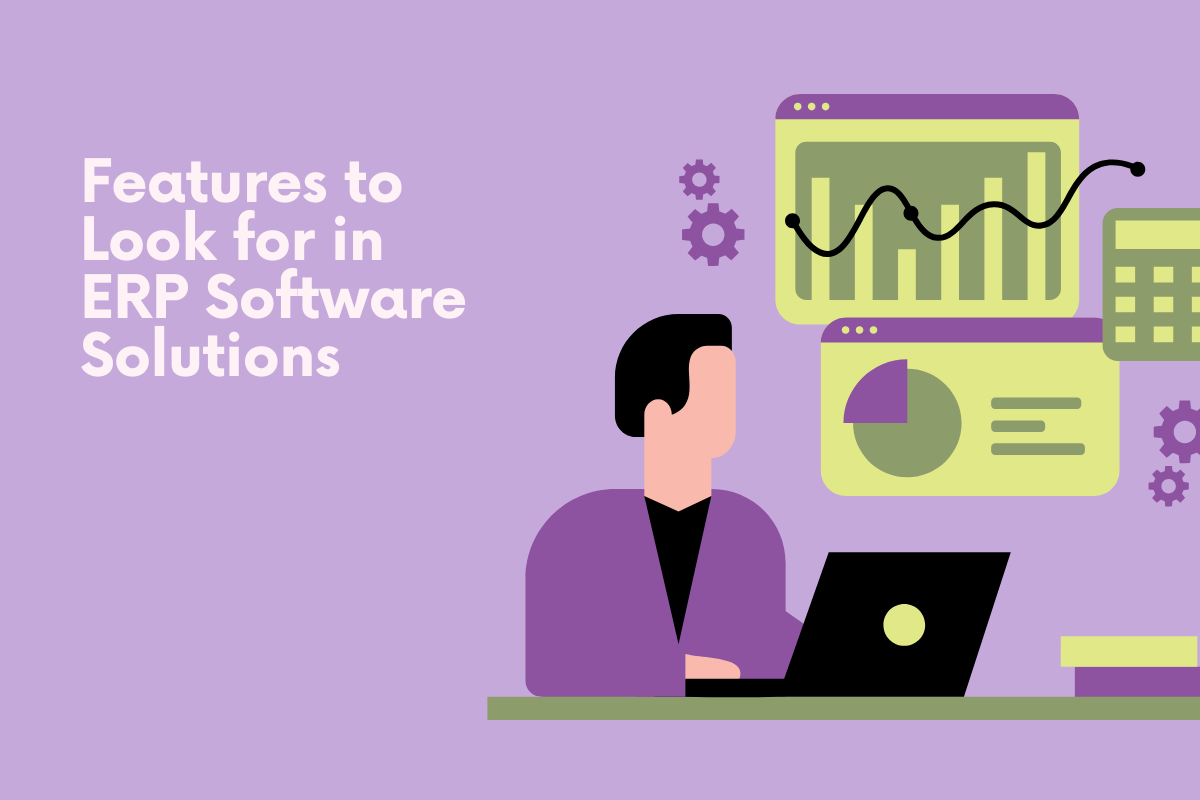Choosing the right Enterprise Resource Planning (ERP) software is critical for businesses aiming to streamline their operations, enhance efficiency, and drive growth. A robust ERP solution serves as the backbone for integrating all facets of an enterprise, from supply chain management to financials, ensuring that every department is aligned and operating effectively. With a plethora of ERP software available on the market, it's essential to know the critical features that will make a system work for your specific business needs. Below, we explore the key elements and considerations every organization should contemplate when selecting an ERP system. Keep reading to discover which features could make all the difference for your company.
Essential Components of ERP Software for Streamlining Business Processes

Enterprise resource planning software brings together key business functions into one system, helping companies manage finances, inventory, operations, human resources, and customer relationships with greater efficiency. From tracking assets and expenses to overseeing supply chains and production, ERP systems give organizations the real-time data they need to reduce waste, improve accuracy, and make informed decisions.
Beyond operations, ERP tools streamline HR management, payroll, and recruitment while also strengthening customer relationships through built-in CRM features. With project management capabilities included, businesses can plan and monitor progress more effectively. By centralizing data across departments, ERP systems foster collaboration and provide a holistic view of the organization.
Customization and Scalability in ERP Systems for Growing Enterprises
As businesses grow, their ERP systems must adapt through strong customization and scalability. Customization allows organizations to tailor dashboards, forms, and reports to match unique workflows and preferences, creating a system that reflects their operations. Scalability ensures companies can start with core features and gradually expand as needs evolve, preventing costly system migrations.
A flexible software architecture supports this by allowing the integration of new modules and third-party applications. Cloud-based models enhance this adaptability with subscription options and easily scalable infrastructure. Regular evaluation of business needs against ERP capabilities helps maintain alignment, while vendors with long-term vision provide the necessary support for sustainable growth.
Evaluating ERP Security Features to Safeguard Business Data
With increasing cyber-attacks and data breaches, ERP systems must prioritize security to safeguard sensitive data. Strong measures such as advanced encryption, multi-factor authentication, and regular security audits are essential to prevent vulnerabilities. Access controls play a key role, allowing businesses to assign user-specific permissions that minimize risks from both external threats and internal misuse.
User activity monitoring and logging provide valuable audit trails for compliance and issue resolution. Equally important is a reliable backup and disaster recovery plan, ensuring continuity in case of failures or data corruption. Regular software updates are vital, as they address security gaps and enhance functionality while requiring vendors to be committed to consistent maintenance.
Integrating Advanced Analytics and Reporting Tools in ERP Solutions

Data-driven decision-making has become vital in modern business, with ERP systems playing a central role. Equipped with advanced analytics and business intelligence, ERP software delivers insights into operations, financials, and customer behaviors, helping identify trends, inefficiencies, and opportunities. Customizable reporting tools provide real-time updates, enabling swift responses to market shifts or internal challenges.
Dashboards track key performance indicators, aligning daily efforts with strategic goals. User-friendly visualizations and interactive reports make data accessible across all levels, encouraging data literacy and informed decision-making. Integrated analytics within ERP systems streamline operations by eliminating separate tools, reducing IT complexity, and synchronizing data across modules for a comprehensive view of business performance.
Assessing Vendor Support and ERP System Training Resources
A successful ERP implementation extends beyond software selection to evaluating vendor support, training, and responsiveness. Strong support services, from help desks to dedicated account managers, ensure technical issues are resolved quickly and effectively. Equally important are comprehensive training resources, including in-person sessions, webinars, documentation, and video tutorials that cater to different learning styles and promote continuous learning.
Vendors with active user communities and robust ecosystems provide opportunities for shared knowledge, expert guidance, and tailored assistance. Responsiveness is also crucial, as businesses benefit from providers who deliver timely updates, adapt to emerging needs, and demonstrate ongoing commitment to client success through proactive engagement and innovation.
Altogether, finding the right ERP software solution demands careful consideration of essential features, customization potential, security protocols, advanced analytics, and robust vendor support. It’s an investment that, when made wisely, can transform the effectiveness and efficiency of a business in an ever-evolving marketplace.





.png)